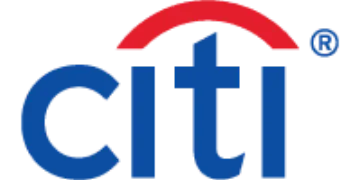Best Debt Consolidation Plans in Singapore 2026
Updated: 12 Feb 2026
1. Go to HSBC site and click the 'Apply Now' button under 'Personal Loans'
2. Fill out application and submit any and all required documents
3. Wait for approval of personal loan
- Enjoy personalised interest rates starting from 3.4% p.a. (EIR 6.5% p.a.) + a S$0 processing fee, based on your personal credit profile
- Receive 5% cashback upon approval of your Debt Consolidation Plan refinancing with HSBC. Terms and Conditions apply.
- Only applicable for Singaporeans and Singapore Permanent Residents
- Enjoy interest savings as you manage only one account for all your outstanding balances with fixed monthly repayment
- Loan tenor of up to 10 years is available for affordable monthly repayment
- Enjoy the perks and benefits of HSBC Visa Platinum Card with credit limit of 1x of your monthly income and annual fee waiver
- Receive a free credit bureau report from HSBC; no loan application required
1. NRIC (Front & back)
2. For salaried employees:
- Latest 3 months' computerized payslips; or
- Latest Notice of Assessment with latest 1 month's computerized payslip; or
- Latest 6 months' CPF statements with latest 1 month's computerized payslip or latest
- Notice of Assessment;
3.For self-employed/ commissioned-based earners:
- Last 2 years' Notice of Assessment -Latest Credit Bureau Report (consumer's version)
- Latest statements of the all existing unsecured credit facilities
The information displayed above is for reference only. The actual rates offered to you will be based on your credit score and is subject to the provider’s approval.
1. Go to Standard Chartered site and click the “Apply Now” button under "Debt Consolidation Plans"
2. Fill out application and submit any and all required documents
3. Wait for approval of personal loan
- Enjoy an interest rate from as low as 3.48% p.a. (EIR 6.33% p.a.). The interest rate offered to you may differ based on your personal credit profile.
- Enjoy interest savings as you manage only one account for all your outstanding balances with a fixed monthly repayment
- Loan tenor of 3 to 10 years available for affordable monthly repayment
- Enjoy the perks and benefits of Standard Chartered Platinum Mastercard with credit limit of 1x of your monthly income and annual fee waiver
- One-time joining fee of S$199
- Only applicable to Singaporeans and Singapore Permanent Residents
- Copy of Passport (with at least 6 months' validity), including the page with address displayed (where applicable)
- Copy of your Employment Pass
- Any ONE of the following documents:
- Latest utility bill, rates or tax bill
- Latest bank / credit card statement (e-Statements are accepted)
- Rental agreement showing your address
- Latest mobile phone statement or pay-TV statement
- Letter from employer stating current address
- Government-issued document stating current address (e.g. IRAS, CPF, ICA)
For SingPass holders applying with MyInfo, please prepare the following:
The information displayed above is for reference only. The actual rates offered to you will be based on your credit score and is subject to the provider’s approval.

DBS Debt Consolidation
1. Go to DBS website
2. Download and fill up the editable Unsecured facilities Declaration PDF form.
3. Check that all required documents are in order.
4. Submit application online
- Interest rates at 3.58% p.a. (EIR 8.22% p.a.)
- Loan tenor of 1 to 8 years is available for affordable monthly repayment
- Get a DBS Visa Credit Card to provide you with a convenient mode of payment for managing your daily essentials with credit limit of 1x of monthly income and annual fee waiver
- Only applicable to Singaporeans and Singapore Permanent Residents
- Your total interest-bearing unsecured debt on all credit cards and unsecured credit facilities with financial institutions in Singapore must exceed 12 times your monthly income in order to qualify for a Debt Consolidation Plan
- Processing fee: S$99
- Early termination fee: 5% on the balance outstanding at point of termination
- Late fee: S$90
1. NRIC (Front & back)
2.Latest Credit Bureau report
3.Income document(s)
4. Latest credit card and unsecured credit loan statements
5. Confirmation letter evidencing unbilled balances for unsecured credit instalment plans (if any)
6. Settlement notice from the original DC bank (only applicable to DCP refinancing applications)
The information displayed above is for reference only. The actual rates offered to you will be based on your credit score and is subject to the provider’s approval.

POSB Debt Consolidation
1. Go to POSB website
2. Download and fill up the editable Unsecured facilities Declaration PDF form.
3. Check that all required documents are in order.
4. Submit application online
- Interest rates at 3.58% p.a. (EIR 8.22% p.a.).
- Loan tenor of 1 to 8 years is available for affordable monthly repayment
- Get a DBS Visa Credit Card to provide you with a convenient mode of payment for managing your daily essentials with credit limit of 1x of monthly income and annual fee waiver
- Only applicable to Singaporeans and Singapore Permanent Residents
- Your total interest-bearing unsecured debt on all credit cards and unsecured credit facilities with financial institutions in Singapore must exceed 12 times your monthly income in order to qualify for a Debt Consolidation Plan
- Processing fee: S$99
- Early termination fee: 5% on the balance outstanding at point of termination
- Late fee: S$90
1. NRIC (Front & Back)
2. Latest Credit Bureau report
3. Income documents
The information displayed above is for reference only. The actual rates offered to you will be based on your credit score and is subject to the provider’s approval.

Citi Debt Consolidation Plan
Visit the Citibank website and select 'Debt Consolidation Plans' under 'Loans', click the “How To Apply” button.
Option 1: Dial Citi at 6397 4888
Option 2: SMS <DCP> to 72484
Option 3: Click here to submit your details for Citi to call you back.
- Enjoy interest savings with no processing fees
- Interest rates from as low as 3.99% p.a. (EIR 7.50% p.a.)
- Enjoy interest savings as you manage only one account for all your outstanding balances with a fixed monthly repayment
- Loan tenor of up to 7 years available for affordable monthly repayment
- Get a credit card with credit limit 1x your monthly income
- Receive complimentary insurance coverage of up to S$160,000. More information here
1. Completed and signed application form.
2. Copy of NRIC (Front & back)
3. Latest copy of your Credit Bureau Report.
4. Latest income documents (dated within last 3 months):
- Latest computerised payslip;
- Latest Income Tax Notice of Assessment;
- Latest 12 months' CPF Contribution History Statement (only applicable for income earner of S$6,000 or less per month)
5. Proof of balances (billed and unbilled) for all your credit cards and/or unsecured credit facilities such as statements and confirmation letters.
The information displayed above is for reference only. The actual rates offered to you will be based on your credit score and is subject to the provider’s approval.

UOB Debt Consolidation Plan
Contact UOB loan associates at +65 6715 5690 (Mon – Fri, 9am – 6pm)
OR
Provide your details here and UOB loan associates will be in touch with you within 2 business days.
OR
Complete the application form together with your supporting documents and email them to uobdcp@uobgroup.com
- Only applicable to Singaporeans and Singapore Permanent Residents
- Enjoy interest savings from as low as 4.50% p.a. (EIR 8.22% p.a.) with loan tenure of 6 years
- Loan tenor of up to 6 years available for affordable monthly repayment
- Receive a complementary Visa Platinum card with a credit limit 1x your monthly income
- Manage only one account for all your outstanding balances with fixed monthly repayment
1. NRIC (Front & back)
2. Latest Credit bureau report
3. Latest Income Documents:
4. For salaried employees – Latest computerised payslip (in Singapore Dollar currency)
5. For self-employed – Latest Income Tax Notice of Assessment
6. Latest credit card & credit line statements of other banks which you have outstanding balances
7. Confirmation letter evidencing unbilled balances for unsecured credit instalment plans (If any)
The information displayed above is for reference only. The actual rates offered to you will be based on your credit score and is subject to the provider’s approval.

OCBC Debt Consolidation Plan
1. Download the application form and submit it together with your supporting documents
2. Get notified by email in about 10 working days once your application has been approved
3. Upon approval, your funds take up to 5 working days to be transferred to pay your outstanding amounts with the respective banks. Existing unsecured credit facilities will also be suspended.
- Monthly repayment remains identical throughout the 8-year loan tenure
- Enjoy an affordable interest rate of 6% p.a. (EIR 10.46% p.a.) on your Debt Consolidation loan amount
- Receive a complimentary OCBC Platinum Credit Card with credit limit 1x your monthly income
1. NRIC (Front and back)
2. Latest Credit Bureau Report
3. Income Documents -Latest computerised / electronic payslip and Latest Income Tax Notice of Assessment -Latest 6 month’s CPF contribution history statement (for monthly income <=S$6,000)
4. Proof of Balances
The information displayed above is for reference only. The actual rates offered to you will be based on your credit score and is subject to the provider’s approval.
What is a debt consolidation plan?
A debt consolidation plan (DCP) is a type of personal loan designed to help you combine multiple unsecured debts such as credit cards, personal loans, or credit lines, into a single loan with a lower interest rate.
Instead of paying off several loans with different due dates and interest charges, you’ll make one fixed monthly repayment. This not only simplifies your finances, but also saves you money on interest, especially if you’re currently paying extremely high interest rates on your credit card.
Once your DCP is approved, the bank will pay off all your outstanding debts directly to the various lenders on your behalf. After that, you’ll owe only the bank that issued the DCP, repaying them at a lower and more manageable rate over time.
Some DCPs even offer daily transport or cash allowances to support your finances while you focus on repaying your debt.
Who can apply for a debt consolidation plan in Singapore?
Not everyone qualifies for a DCP. These plans are regulated by the Monetary Authority of Singapore (MAS) and meant for Singaporeans facing significant debt challenges. You’ll need to meet specific requirements on citizenship, income, and debt levels to be eligible.
Citizenship
To qualify for a DCP, you must be a Singapore citizen or permanent resident (PR). Foreigners are not eligible, even if they work and live in Singapore.
Income and net worth
You must earn between S$20,000 and S$120,000 annually and have net personal assets below S$2 million. This range targets the middle-income segment most vulnerable to high-interest debt.
Outstanding debt
You must also owe at least 12 times your monthly income in unsecured credit across financial institutions. This ensures DCPs are reserved for borrowers with a high debt-to-income ratio who genuinely need help.
What if I don’t qualify for a debt consolidation plan?
If you don’t meet the criteria, you can still manage your debts using a personal loan. Just do it similar to how a DCP works: borrow a lump sum at a lower interest rate, and use it to pay off your higher-interest debts.
The key is discipline: make sure you immediately repay all your other loans once the funds are disbursed. Don’t treat the loan as free money, or you’ll end up deeper in debt.
This DIY approach offers flexibility but requires commitment to succeed.
How does a debt consolidation plan affect your credit score?
A DCP can affect your credit in both the short and long term. In the beginning, your credit score may dip slightly because you’re applying for a new loan and your existing accounts are being restructured. Some banks may also reduce or suspend your access to unsecured credit once you’re on a DCP, which helps prevent further overspending.
Over time, however, a DCP can improve your credit health if you make consistent on-time repayments and reduce your overall outstanding debt. In simple terms: it may cause a small short-term impact, but it can be a positive step if it helps you repay debt responsibly and avoid missed payments.
How to apply for a debt consolidation plan in Singapore
1. Confirm you meet the DCP eligibility criteria
Debt Consolidation Plans (DCPs) in Singapore are designed for borrowers with high unsecured debt. Before applying, check that you meet the bank’s requirements: typically Singapore Citizen/PR status, an annual income within the eligible range (often S$30,000 to below S$120,000), and a Balance-to-Income (BTI) ratio of more than 12 times your monthly income.
2. Compare debt consolidation options
Make a full list of what you currently owe across all banks and lenders, such as credit cards, personal loans, and credit lines. This helps you estimate the loan amount you need and ensures every eligible balance is included in your debt consolidation plan.
Compare debt consolidation plans across banks by looking at key factors like the interest rate (both annual rate and EIR), maximum tenure, processing fees, early repayment charges, and whether the bank offers a credit card with a controlled limit for daily expenses. Using a comparison tool can help you shortlist the best debt consolidation plan for your needs.
3. Prepare your documents and supporting information
Once you’ve shortlisted a plan, get your paperwork ready so you can apply smoothly. Banks typically ask for:
-
NRIC (for Singaporeans/PRs)
-
Latest payslips and/or CPF contribution statements
-
Income tax notice of assessment (for self-employed applicants)
-
Proof of address (if required)
-
A list of your existing unsecured debts and outstanding balances
4. Apply for the loan and wait for approval
Most banks allow you to apply online, and some may verify your details quickly through MyInfo (Singpass). After submission, the bank will assess your income, debts, and credit profile before confirming your approved loan amount and repayment terms.
Once approved, the bank will typically disburse funds directly to pay off your outstanding unsecured debts with other financial institutions. You’ll then repay the DCP as one fixed monthly instalment, which makes budgeting simpler and helps you regain control of your finances.
Frequently asked questions about debt consolidation plans in Singapore
-
Increased interest charges or penalties
-
Loss of promotional rates, if your DCP came with special terms
-
Collection action by the bank if multiple payments are missed
-
Difficulty getting future loans or credit cards
Yes, if you’re struggling with multiple debts and high interest rates. DCPs can lower your monthly payments and reduce the total interest paid.
Only unsecured debts like credit cards and personal loans are allowed. Car loans, home loans, and education loans are excluded.
Yes. If you miss repayments, your credit score could suffer. Also, you may be tempted to spend again if your credit cards are not cancelled post-DCP approval.
Typically, 1 to 2 weeks. Once approved, your DCP provider will repay your existing debts directly. You’ll then begin monthly repayments to the new lender.
Missing a payment on your debt consolidation loan can have serious consequences. Most banks will impose late payment fees and may report the missed payment to credit bureaus, which can hurt your credit score.
If the missed payment isn’t resolved quickly, it could lead to:
To avoid this, always ensure there’s enough in your bank account for GIRO deductions, and consider setting up reminders or automatic payments. If you foresee difficulties repaying, reach out to your bank early, they may offer restructuring options to help you stay on track.


